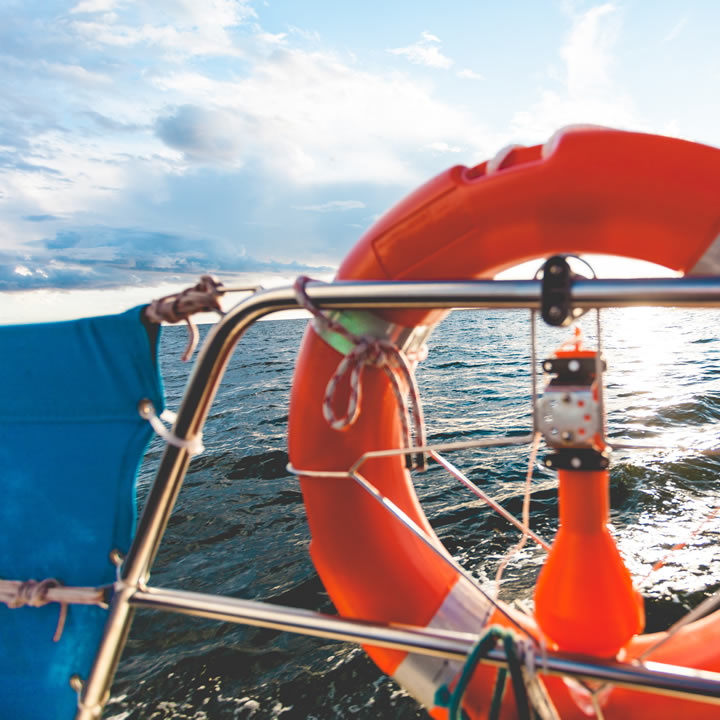Boating can be a relaxing and fun outdoor recreational activity with close friends and family.
Whether you want to enjoy the cool breeze on a warm sunny day, dive into the water or go fishing, you can also engage in other water activities while boating.
Although this activity is relatively safe, it does come with its own set of risks. First-timers who may want to explore the open water should always ensure their safety while onboard. Accidents can be prevented through ample preparation and the use of proper gear and equipment.
Here are several boating safety tips to consider on your next travel adventure.
Enroll In A Boater Safety Course
Enrolling in a boater safety course to obtain a boating license is one way to prepare for your upcoming boating activity. Attending this course will not only test your knowledge and skills but will also ensure that you know how to stay safe while on the water.
This also involves learning how to avoid common accidents and respond quickly in an emergency.
If you live in New York, you must first obtain a New York boating license which is mandatory for all watercraft operators in the state. If you live in another state, it’s also a good idea to check local policies, regulations, and guidelines to prevent violating them.
Wear A Life Jacket
In boating-related accidents, most victims of drowning were not wearing a life jacket. When a person falls overboard, it’s likely they’re injured, disoriented or unconscious. A life jacket keeps a person’s head above water, allowing them to breathe and making rescue easier.
Although laws and regulations on the use of life jackets differ depending on the state, you and your passengers, regardless of age, should make it a priority to wear one while the vessel is underway.
If you are a boat owner, you should also make it a point to have life jackets available on the vessel that are suitable for the water activity and the types of passengers who are present.
There are many types available on the market, each of which serves a particular purpose. Make sure what you’re wearing fits properly and is also appropriate for your height and weight. You may also want to consider these tips:
Try to wear the life jacket before purchasing it. Make sure to fasten the vest, hold your arms up over your head, and ask someone to gently pull the top of the arm opening to ensure it snugly fits.
If your main activity while boating is fishing, look for a life jacket with several pockets and straps to hold tackles and supplies.
Avoid Drinking Alcohol While Boating
The combination of alcohol and boating will always be a bad one. Alcohol is one of the leading causes of fatal boating accidents. While boating, you should be alert at all times and it’s advisable to leave any alcoholic beverages on dry land.
Maintain A Safe Speed And Follow Boating Safety And Navigational Guidelines
Speeding is one of the contributing factors to boating accidents. You should fully understand the local rules and guidelines of the waterway and carefully follow them while on the water.
It would be best to watch out for several elements such as visibility, traffic density, and closeness to hazards such as floating objects, rocks, or shoals.
Have A Float Plan
Always let your family or friends know where you’re going and when you’ll be back before you go boating. If you don’t return on the scheduled day, they can immediately notify the authorities.
It’s also crucial to monitor the weather forecast. While out on the open water, a beautiful, calm day might abruptly turn gloomy and blustery. While boating, keep an eye out for changing weather conditions.
Get a Boat Safety Kit Ready
You’ll never know when an emergency will occur, so it’s best to be ready for any situation. Having a boat safety kit will come in handy and should include the following:
- Flashlights with spare batteries to serve as illuminating devices and send distress signals
- First aid kit to treat minor wounds and medical emergencies
- Extra life jackets to immediately replace faulty ones while on the water
- Whistles to call attention and signal for help
- Ropes to pull someone overboard, secure your vessel to the dock, or fasten items during severe weather conditions
- A fire extinguisher to put out fires onboard
These items are some of the basics and will help you can respond quickly to untoward incidents.
Examine the Vessel for Hazardous Fumes
After refueling your boat, you should open all hatches and check for any fumes. If you detect fumes, avoid starting the engine.
It’s important to note that carbon monoxide can build up in and around your vessel. Once this occurs, it can put you or your passengers at risk of losing consciousness.
Some places where fumes and gases accumulate include enclosed spaces, canvas enclosures, or blocked exhaust outlets.
Conclusion
Getting ready for an upcoming boating adventure can be exciting, but make safety the priority at all times. With the help of these safety tips, such as getting a boating license, wearing a life jacket, avoiding alcohol on board, having a float plan and a boat safety kit, and carefully examining the water vessel, you can have a delightful outdoor experience.

